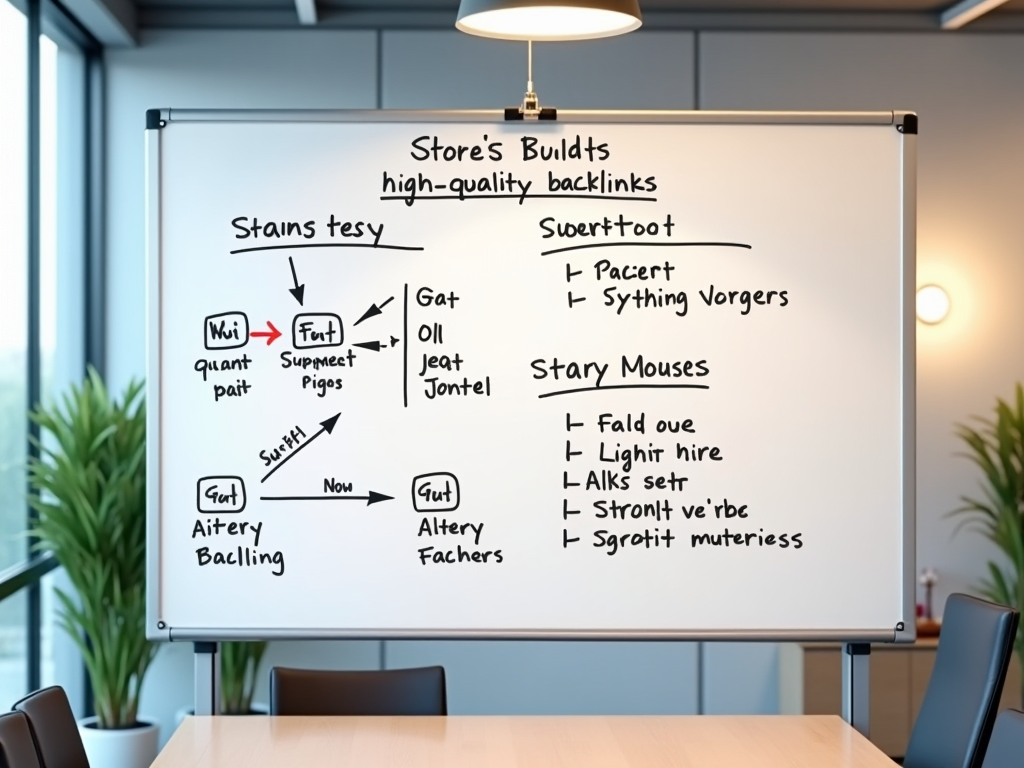High-quality backlinks are essential for improving website SEO and domain authority. They serve as endorsements from one website to another, enhancing your site’s credibility and search engine ranking. However, finding these valuable backlinks can be challenging. Private Blog Network (PBN) backlink services offer one solution to acquiring high-quality backlinks, though they are often met with skepticism due to their potential for misuse. This article aims to guide you through the nuances of finding quality backlinks responsibly, using PBN services when appropriate, and understanding the associated risks and benefits.
Understanding PBN Backlink Services

At the heart of SEO strategies, PBN backlink service stands as a powerful yet controversial tool. A Private Blog Network consists of multiple websites that link back to your site to boost its ranking on search engines. While some consider this a shortcut, others see it as a strategic part of a comprehensive SEO plan, provided it’s employed ethically. Using PBNs can be advantageous, offering controlled, high-authority backlinks, but they must be managed wisely. The key benefits include improved search engine rankings and greater online visibility. On the downside, poor management and unethical practices could lead to significant penalties.
Criteria for High-Quality Backlinks

Not all backlinks are created equal, and discerning the quality of a backlink is crucial in leveraging SEO benefits. Here are the factors that typically define a high-quality backlink:
| Criteria | Importance |
|---|---|
| Domain Authority | Indicates the trustworthiness of the linking domain. |
| Relevance | The linking site’s content should be relevant to your niche. |
| Organic Traffic | Sites with significant traffic are more credible sources. |
| Trust | Links should come from dependable and genuine sites. |
Evaluating a backlink involves thorough research using tools like Ahrefs, Moz, and SEMrush, which help gauge the effectiveness of backlinks based on these criteria.
Evaluating Domain Authority and Relevance
Understanding domain authority and relevance is vital when evaluating the quality of a backlink. Domain authority, a metric created by Moz, ranks a website’s likelihood to rank well on search engines. It operates on a scale from 1 to 100, with higher scores denoting a greater likelihood of successful rankings. Relevance, on the other hand, considers how closely the content of the linking site matches your niche, enhancing the meaningfulness of the link. Here’s how you can ensure your backlinks are from high domain authority and relevant sources:
- Utilize tools like Moz’s Link Explorer to assess domain authority.
- Analyze the linking domain’s content to ensure it resonates with your industry or topic.
- Maintain consistency by linking to articles that are contextually relevant to your content.
Identifying Trustworthy PBN Service Providers
When seeking a PBN backlink service, the provider’s credibility is crucial. To identify trustworthy PBN services, start by examining their history, client testimonials, and case studies. Reputable PBN providers will demonstrate transparency in their operations and the composition of their network. Be wary of red flags, such as lack of transparency or extremely low pricing, which may indicate low-quality or risky networks. Always verify the quality of their backlinks using the aforementioned criteria and evaluation tools. Here are steps to ensure you’re making the right choice:
- Review their portfolio and request examples of past work.
- Consult with other clients to gather genuine feedback on their experiences.
Strategies for Building a Diverse Backlink Profile
The significance of having a diversified backlink profile cannot be overstated. While PBNs can offer controlled and strategic backlinks, they should be complemented with other link-building methods. A diverse backlink profile not only mitigates risk but also strengthens your SEO strategy by adhering to search engine guidelines. By integrating various tactics such as guest posting, content creation, and leveraging social media, you can build a robust framework of backlinks. This diversity ensures longevity and stability in your site’s SEO health.
Beyond PBNs, numerous legitimate strategies exist for acquiring quality backlinks. Outreach and guest posting remain conventional yet effective methods, involving collaboration with other content creators for mutual benefit. Creating link-worthy content, such as in-depth guides and data-driven articles, naturally attracts backlinks. Furthermore, engaging in community forums and active social media presence amplify your content’s visibility, facilitating organic link-building. These strategies align with ethical SEO practices and foster genuine link connections.
Risks and Ethical Considerations
Engaging with PBNs involves inherent risks, particularly concerning search engine penalties. Google actively discourages manipulative link schemes, including PBNs, which can attract sanctions if not managed properly. It’s crucial to balance risk with ethical strategies that align with search engine guidelines. By maintaining transparency, regularly auditing your backlink profile, and diversifying your link-building approach, you can navigate around potential penalties. Ethical SEO not only protects your website but also enhances its long-term credibility and success.
Итог
In summary, PBN backlink services, when employed responsibly, can be a valuable component of your SEO strategy. High-quality backlinks remain pivotal in asserting domain authority and improving search engine visibility. However, ethical considerations, diversification, and consistently evaluating backlink quality must guide your approach to ensure sustainable success. Ultimately, a balanced strategy incorporating multiple link-building methods will fortify your website’s SEO presence.
Часто задаваемые вопросы
1. What is a PBN, and why is it controversial?
A PBN, or Private Blog Network, is a network of websites used to build backlinks for improving site rankings. It’s controversial due to its manipulation of search engine rankings and potential to violate Google’s guidelines.
2. How do I ensure a backlink is high quality?
High-quality backlinks come from authoritative and relevant sources, possess high domain authority, and draw organic traffic. Using SEO tools can help evaluate these metrics.
3. Can using PBNs get my site penalized by Google?
Yes, if done improperly. Google frowns upon artificial link schemes, including PBNs, which can lead to penalties. Ensure you use ethical practices if you choose to engage with PBNs.
4. What are some alternatives to using PBNs for backlinks?
Alternatives include organic link-building strategies like guest posting, creating compelling content, influencer outreach, and social media promotion.
5. How often should I audit my backlink profile?
Regular audits are recommended, ideally every quarter, to ensure your backlinks remain high quality and to identify any potentially harmful links for disavowal.
